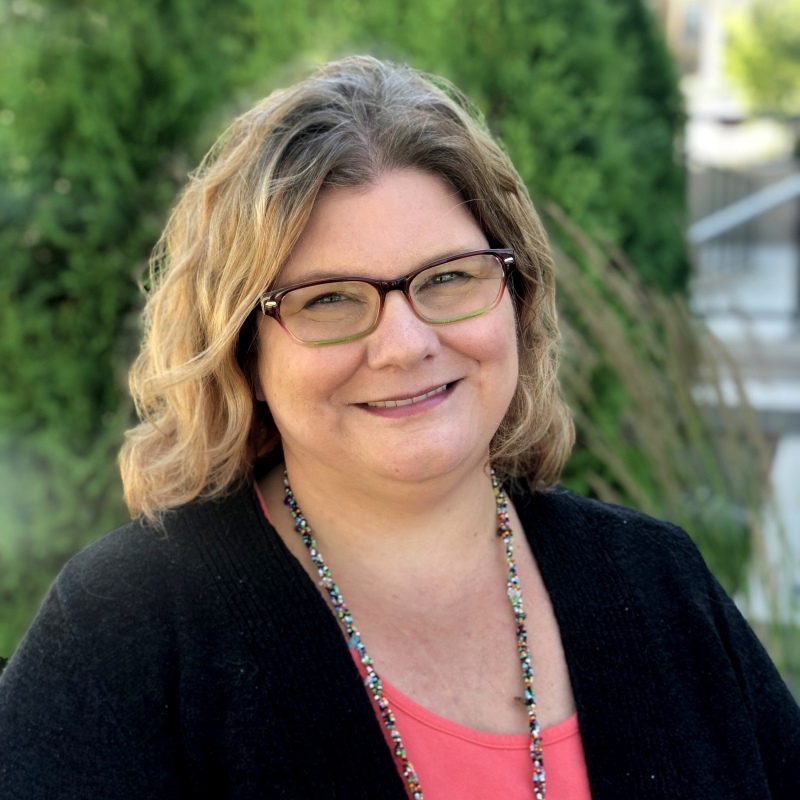Clinic-Based DBT IOP Services
I love DBT and I continue to be amazed at how it can help clients transform their lives. I strive to make groups and individual sessions fun and accessible. My approach to therapy is non-judgmental, direct, compassionate, and trauma-informed. I meet clients where they are and help them define and build a life worth living. I believe we are all good people doing the best we can, but sometimes we are driven more by emotions and behaviors than our values and goals. Together, we work toward identifying and overcoming old habits and coping strategies and develop new, more helpful ones.
I have worked with a wide range of clients including individuals with substance use disorders, suicidal thoughts or actions, impulsivity, complex trauma, depression, hopelessness, and emotional reactivity. I strive to be culturally competent in my relationships with clients and I have training and experience working with clients who identify as lesbian, gay, bisexual, transgender, non-binary, or queer.
Dialectical Behavior Therapy
ACP’s DBT program adheres to the Linehan model of DBT, is certified by MN DHS. Our clients meet with their individual therapist for one hour a week and attend a two-hour weekly skills group for at least 26 weeks. Unlike traditional group psychotherapy which focuses on processing experiences and feelings, DBT groups focus on learning four sets of important skills: mindfulness, distress tolerance, emotional regulation, and interpersonal effectiveness. DBT is a very effective treatment for multiple conditions including borderline personality disorder, depression, PTSD, impulsivity, eating disorders, and some forms of anxiety.
Approach to Supervision
Supervision is a non-judgemental space where everyone has space to be flawed, make mistakes, and grow. We meet each week and review part of a session that they recorded. We discuss what went well and how they did or did not struggle. I provide education and insight into how to use the DBT model to help the client reach their goals or help the clinician to name their own therapy interfering behaviors. I see my role as coach and cheerleader. I also ask that my supervisees check in on their burnout and self-care to make sure they are maintaining a work/life balance. We also participate in a consultation group each week where supervisees can hear other clinicians review cases, problem solve, and identify therapy interfering behavior as well as get additional feedback on their own clients. Just because I am the supervisor doesn’t mean I have all the answers. DBT is a team model. We all have different insights, experiences, and ideas to bring to the table – whether you have been a DBT therapist for 5 days or 50 years! I love teaching and supervising. I hope it helps both of us be better therapists, team members, and people. I am passionate about DBT and working with this population and I love sharing that passion with others. I truly want others – my clients and my supervisees – to be the best versions of themselves, and it is a joy to be part of that process with them.
Telehealth Services
To expand and improve our care options for clients, ACP offers Telehealth (phone or video) appointments. Telehealth uses phone or video conferencing to connect you with highly qualified and experienced providers in real-time from the comfort and convenience of your own home or office. Before your telehealth appointment, you will receive details for how you will connect with your provider. If you will be connecting via phone, the provider will plan to call you at your scheduled appointment time. Please be ready to take the call and also check that your phone allows calls from blocked numbers (accessible within your phone settings). If you will be connecting via video conference, your provider will email you an invite to join the appointment. Please call our office to learn more about ACP’s telehealth services and to schedule an appointment.
Areas of Specialty
- EMDR
- Personality disorders
- LGBTQ adults
- Impulsivity
- Polyamory
- Substance Use and Addiction
- Parenting
- Sexual Health
Licensures / Titles
- Licensed Professional Clinical Counselor (LPCC)
- Mental Health Professional
Education
- Master of Arts, Counseling (MA) – St. Mary’s University

Locations:
Apple Valley Minneapolis West St. Paul
